Sir, – I refer to the recent letters from Jamie Williamson and Peter Fraser in response to my letter about estate management.
I am unclear as to why Jamie Williamson refers to climate effects of 6,000 years ago. It is now 2023 and the world is facing a climate disaster which positive management from Scotland’s estates can help alleviate.
Forests have been denuded to fuel furnaces and build ships but also to pay estate owners’ debts. Queen Victoria was so concerned about potential clear felling that, in an early act of conservation, she bought the neighbouring Ballochbuie estate on Deeside to preserve its ancient pines. Although our woodland areas have increased, a significant proportion of this is in densely planted commercial sitka spruce with little value for wildlife. Mr Williamson boasts of Scotland’s 19% tree cover but as this is precisely half the 38% of our neighbours in Europe, it is not much to be proud of.
Our small country of Scotland carries an estimated deer population of over 360,000 – about the same number as there are in Spain, a country which is six times larger. Ecologists have suggested for decades that an optimal number of deer is around one third of the current level.
Our deer population is maintained artificially high to maintain the stalking industry, but their overgrazing prevents natural woodland regeneration which can be seen occurring in areas where deer are excluded or controlled. Reduced deer numbers will allow larger-scale natural woodland regeneration and benefit the nation by locking up carbon and greatly increasing biodiversity. Lower deer numbers also mean more food availability, and hence bigger deer and a better premium for deer stalking.
Throughout the world peatland is one of the finest means of locking up carbon. Peat is created by a build-up of rotting dead vegetation, so it is hard to understand Jamie Williamson’s desire to manage dead vegetation by burning it to control wildfires – and hence preventing peat build-up.
Wildfires in this country are caused by carelessness with campfires and barbecues, and it should be noted that almost half the wildfires are caused by muirburn getting out of control. Muirburn is extremely damaging as it removes vegetation leading to erosion of peat by rainfall and will also burn into the peat itself. Sphagnum moss which builds up wet peatbogs to lock up carbon does not survive muirburn, so peat bogs do not form.
Constant burning selects in favour of fire-tolerant heather and destroys most other flora. It is claimed to enhance moorland for the single purpose of grouse shooting but there is little evidence that grouse numbers increase.
Regrettably, as we all know from the news reports in this paper, despite the legislation, raptors are illegally killed in this part of Scotland.
As justification for “predator control” on shooting estates, Peter Fraser refers to stoat eradication in Orkney by the Orkney Native Wildlife Project.
The following quote from them explains why stoats are being eradicated in Orkney: “Stoats are not native to Orkney and their arrival poses a serious threat to the internationally important populations of native wildlife on the islands.
“To prevent irreparable damage to Orkney’s natural heritage, stoats must be removed from Orkney and measures put in place to prevent them returning.”
Stoats are recent invaders and were first seen in Orkney in 2010. Introduced species like these have caused havoc with native fauna throughout the world e.g. rabbits in Australia, grey squirrels in this country and rats in South Georgia, the south Atlantic island which is now thankfully rat-free.
It is clearly absurd to compare the Orkney project to the wholesale slaughter of so-called vermin on shooting estates which is done just to allow more grouse to be killed.
Colin D Young, Newtonhill.
Questions remain over ferries fiasco
Sir, – Being allowed to contribute my bad-natured comments to your columns on the ferries fiasco acted like a pressure valve; bringing relief as the public purse has to find somewhere north of £300 million instead of the promised £97 million.
Alas, we have yet to get the full picture and a sorry mess pictured and framed for your readers.
For example, who was responsible for signing off the Ferguson contract which left a crippled ferry service? Not only two part-finished ships over a five-year period but also ordering another two from Turkey plus signing off £9 million rental for the nine-month charter of the MV Alfred, which takes 45 minutes to turn around.
Also, despite all the criticism of Westminster and the UK, I believe part of the navy frigate build programme will be given to Ferguson to keep the Holyrood show and the jobs going.
The latest chapter in this horror story tells us that six senior directors have trousered bonuses without the Scottish Government’s knowledge.
I would like to know how much they have been paid – and for what. We could ask the main players in Holyrood, of course, but since they apparently were unaware of the bonus payments being made they are unlikely to know.
Sam Coull, Lendrum Terrace, Boddam.
CoE hypocrisy over gay sex
Sir, – The Archbishop of Canterbury, it seems, is writing to the Ugandan president to talk him out of new extreme anti-gay legislation which plans to impose the death penalty for “aggravated homosexuality”. This, among other things, means “repeat offending”. What an untenable position from someone who himself opposes equality and upholds that gay sex is a sin.
As the Church of England is viewed as Uganda’s “mother church” it should look to the example it sets and while he may sit at a different point on this sliding scale of discrimination, Mr Welby is surely not due a medal for condemning gay execution.
Neil Barber, Edinburgh Secular Society, Saughtonhall Drive, Edinburgh.
This union has run out of steam
Sir, – Employing Johnsonian hyperbole, Richard Marsh (Letters, March 22) effuses: “The UK is the most successful and productive union in the history of world.” Scrutiny suggests otherwise.
Topped by a self-perpetuating public-school freemasonry lacking social empathy, Westminster governance is antiquated.
There is no written constitution and voting systems differ between the devolved governments (PR) and Westminster (FPTP). The latter, which resulted in an 80-seat majority with a plurality of 43% for Johnson in 2019, is manifestly unfair.
Thatcher decimated manufacturing: the corollary being low industrial investment inhibiting productivity and wages. Cameron’s austerity underfunded public services, simultaneously sucking demand out of the economy.
Bloomberg reports that Brexit costs £100 billion annually in lost output with exports and foreign investment declining. Britain is desperate for workers, but the government is intent on exercising its delusional immigration policy, spending £1bn a year accommodating able-bodied immigrants, conditional on them not working.
Poverty, evidenced by the rise in foodbanks, is increasing. Equality Trust findings for 2022 show households in the bottom 20% of the population with average disposable income of £13,218 compared to £83,687 for the top 20%. Real wages are falling while inflation and mortgage rates rise. Regional disparities exist with median annual earnings in London of £41,866 in 2022 compared to £29,521 in north-east England.
Dissatisfaction, in a London-centric Britain, is widespread, with many no longer identifying as British. The 2011 English Census revealed 60% identifying as English. Only 20% found Westminster governance acceptable. The Union is no longer fit for purpose.
Ian D McCormick, Huntly Road, Aboyne.
Mystery over ACC’s financial shortfall
Sir, – There has been much discussion about the savings proposed by Aberdeen City Council to fill the “black hole” of £46.8 million in the 2023-24 budget. Many of the proposed cuts, such as to library and sports services. are being strongly and, in my opinion, reasonably opposed. While there is undoubtedly a shortfall in the budget, the source of it – and implications for future years – are far from clear.
The summary table in the General Fund Revenue Budget document from the council meeting of March 1 shows that in the year 2022-23, net expenditure on corporate services (HR, IT, legal, procurement etc) was £60.2 million. The corresponding figure in the 2023-24 budget is £111.4 million, an increase of over £51 million or 85% year on year. There is no clear explanation of this massive increase, which would more than account for the so-called “black hole”.
I have seen various quotes from council leaders saying they are coping with “unprecedented financial pressures”, without detailing what these are. I have approached a number of councillors, asking for an explanation of the increase in spending on corporate services.
The most common response has been no response whatsoever. Of those who have replied, two committed to find out, although have not done so to date and one admitted that he does not understand some of the financials. Another simply stated that I was misunderstanding the figures, although he did not explain how this was the case.
It is very concerning that there is either a severe lack of understanding of the council finances by our councillors or a wilful lack of transparency.
Either way, it is difficult to conclude that the elected representatives on the council are managing the current financial situation effectively.
David Scott, Morningfield Road, Aberdeen.
Brexit is holding Scotland back
Sir, – I thoroughly enjoyed the letters on March 22 from Messrs Marsh, Coull and Philip who kindly put in the time to respond to my own offering of some eight days earlier. I thank them kindly for their effort.
However, I’m afraid that all their claims about the superiority of the Union and the negative economic impact of independence are as old as the hills and have been used to no avail for decades.
The fact is that few, if any, listen to these any more. And it’s for one good reason – which was reinforced by the chair of the Office for Budget Responsibility Mr Richard Hughes who has stated recently: “We think that, in the long run, (Brexit) reduces our overall output by around 4% compared to had we remained in the EU.”
So really, in the light of this and its huge impact on Scottish economic potential, I must quote Sir John Curtice, the eminent political scientist, who said: “Making the case (for the Union) means explaining why Brexit is to Scotland’s advantage. Good luck!”
Can either Mr Marsh, Mr Coull, Mr Philip or any unionist do that and at the same time justify that 4% fall in output? I somehow think not and neither can any political party that’s now willing to accept Brexit.
Dick Winchester, Old Rayne, Aberdeenshire.
In defence of the humble neep
Sir, – Can there be a more worthy cause than giving voice to the mute, this necessity the reason for writing in support of one so afflicted, a dietary hero from my childhood, the humble turnip, now spoken of in sneering tones by such as Jennifer McAughtrie (The Press and Journal, March 24) who obviously has no knowledge of the diet of simple country folk like my family working the meagre soil of upper Aberdeenshire during a period of great poverty, the years of war and the immediate aftermath.
The wives and mothers were culinary maestros, conjuring meals from what little was available, their reliance on the turnip or its even tastier cousin, the swede, in almost everyday evidence.
A weekly – or often more frequent – favourite was vegetable soup whose main ingredients were potato, turnip, cabbage and whatever edible could be added to the brew. Then there was mashed turnip, mixed with a little milk, seasoned with a dash of salt and pepper and served with, unsurprisingly, potatoes.
Never forgotten, the stealthy visit to a turnip field, the tuck shop of the penniless, the choice sliced with the ever-present pocket knife, and eaten to ease the pangs of schoolboy hunger.
A dietary staple of countryfolk now an object of derision and thought inferior to alternatives brought from abroad, and the shortage of peppers and cucumbers deserving front-page headlines.
To him that is deprived of food the boiled turnip is a delicacy as caviar is to a king.
Ivan W Reid, Kirkburn, Laurencekirk.
Time to undo the damage
Sir, – Nicola Sturgeon took over the minority SNP Government as first minister nine years ago and now leaves behind a minority SNP Government. No change there!
All that has changed in nine years under her charge is the NHS service is now in chaos, poverty, homelessness and drug deaths are at their highest-ever levels, and the Scottish economy is in recession.
The challenge for her successor will be trying to undo all the damage done to Scotland over the last nine years, which is going to take a lot of hard work and a wide range of changes in SNP strategy.
Dennis F Grattan, Bucksburn.
Is council lying low in shame?
Sir, – Business leaders in Aberdeen come up with a plan to clean the city’s once proud centre of attraction (Union Street) – ask the citizens to volunteer for the job.
Bob Keiller says it’s possible to hire contractors, but that would not be the best use of money.
Eh? Whose money is that please?
Is there no one from the council who can stand up and ask the people of Aberdeen to help, or is it they are ashamed it has come to this maybe?
Don’t get me wrong – it’s a good idea and I’m willing to help, but I would be wanting a Burger King at least once a day as a sort of gratitude payment.
I don’t think that’s much to ask for.
So when do I start?
Joseph Durno, Cummings Park Circle, Aberdeen.

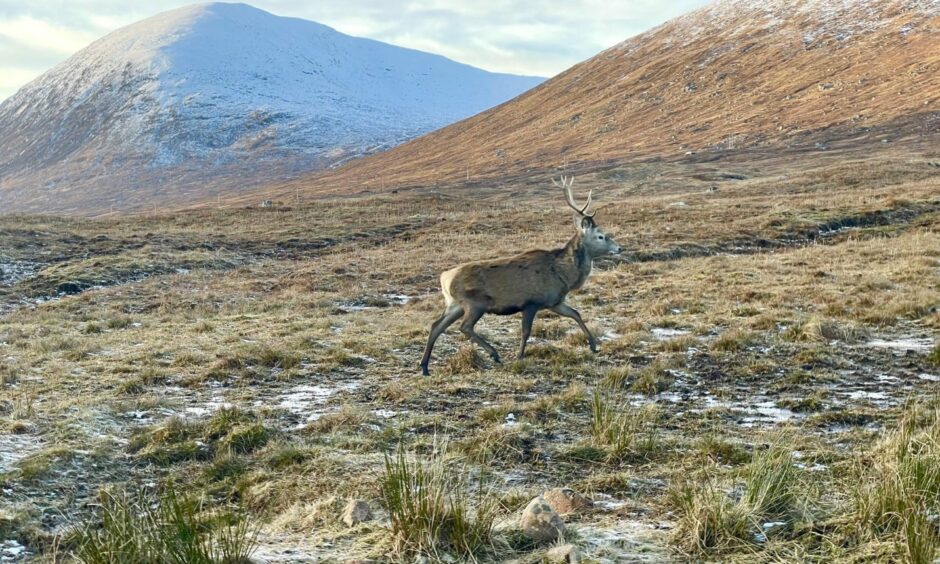
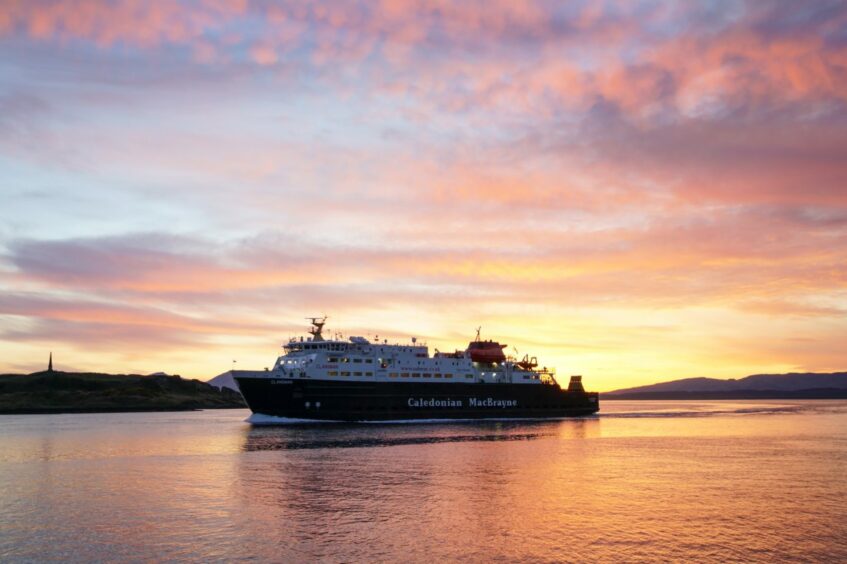
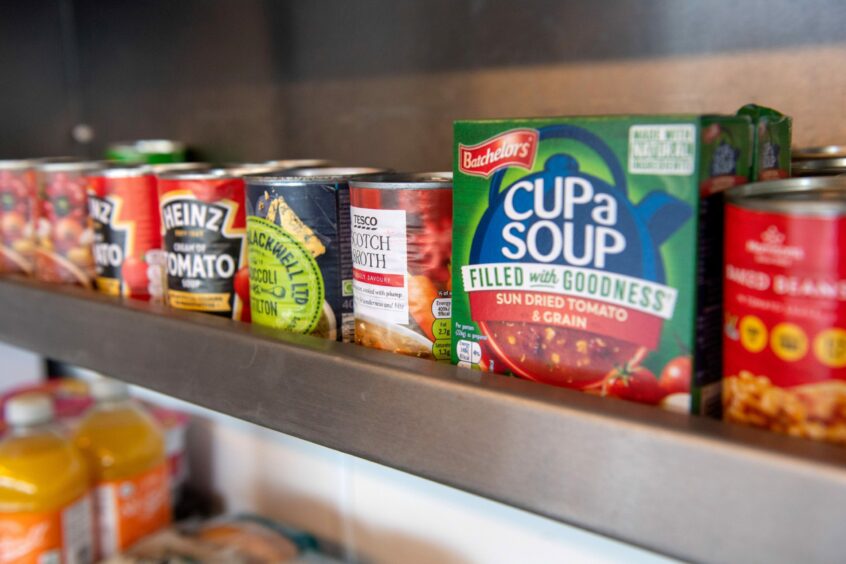

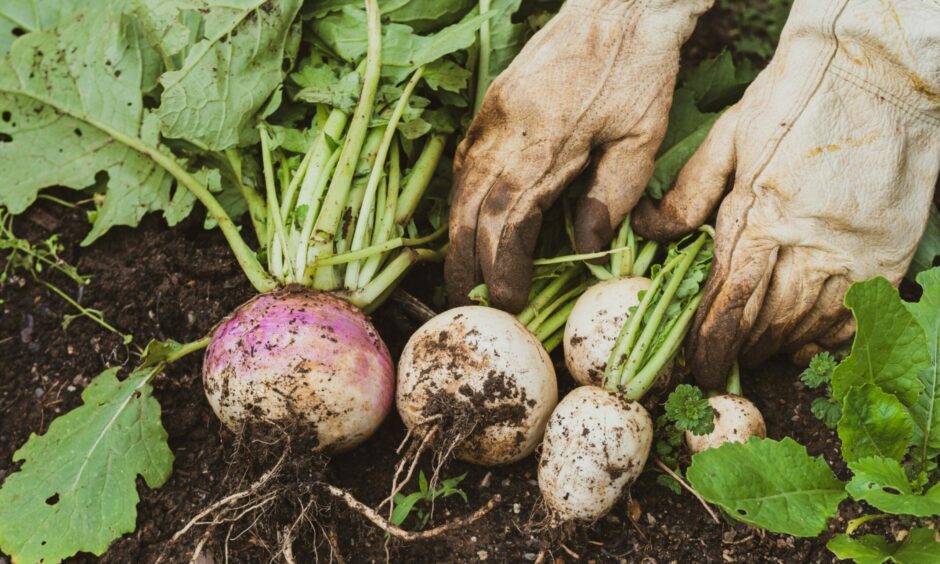
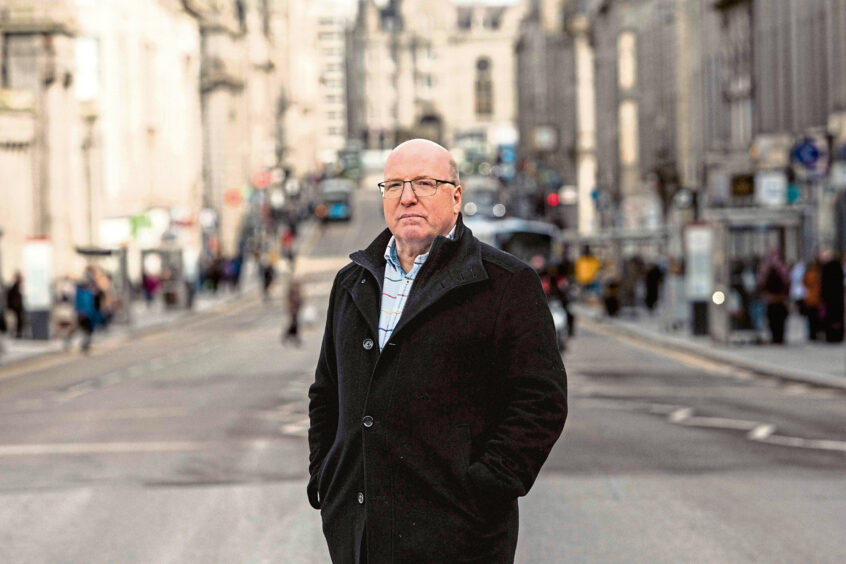
Conversation